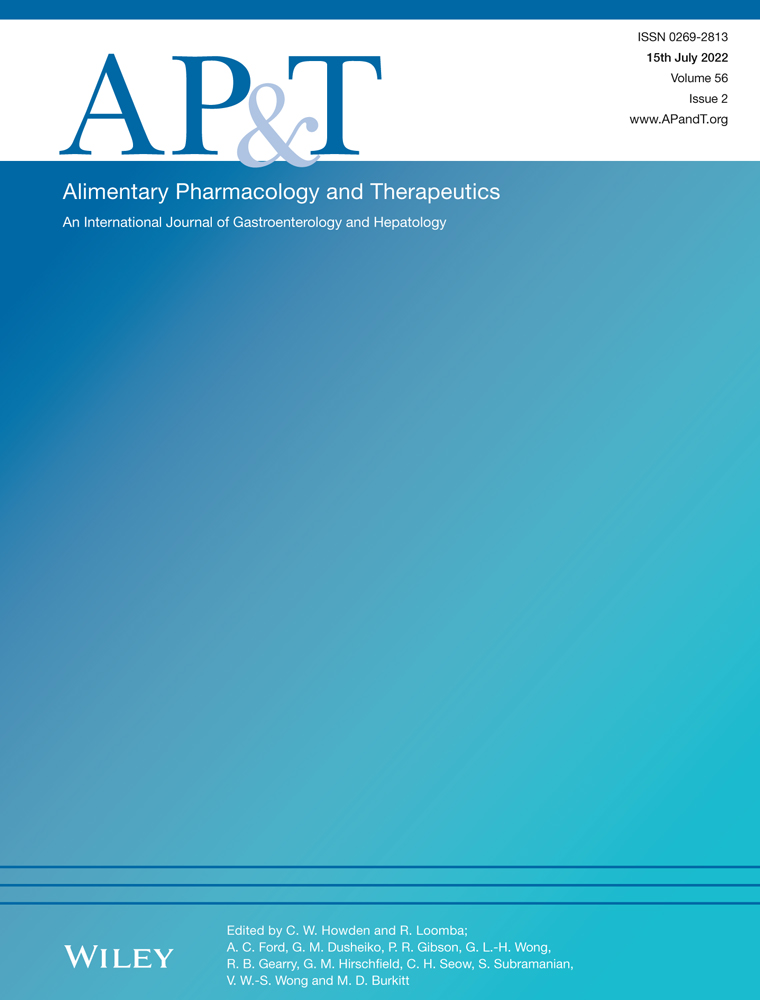Editorial: lack of gastrointestinal symptoms caused by gluten in patients without coeliac disease—time to ditch the ‘gluten’ from ‘non-coeliac gluten sensitivity’
LINKED CONTENT
This article is linked to Crawley et al papers. To view these articles, visit https://doi.org/10.1111/apt.16914 and https://doi.org/10.1111/apt.16980
In the community, adverse symptoms attributed to dietary gluten are the reason many people follow restrictive gluten-free diets even in the absence of coeliac disease and wheat allergy.1 While the symptoms are real, the medical community continues to grapple with the definition and pathogenesis of ‘non-coeliac gluten sensitivity’ (NCGS).2 Until the identity of the causative food component is resolved and diagnostic biomarkers are developed, characterising this syndrome will remain elusive. Traditionally, double-blind, placebo-controlled gluten challenge (DBPCGC) is considered ‘gold standard’ for the diagnosis of NCGS (Salerno criteria).2 However, the approach is logistically challenging, hampered by inconsistent application, and carries a high nocebo effect that may hinder identification of NCGS and confound interpretation of feeding studies.3-5
As a result, trials employing DBPCGC have failed to resolve if gluten is the trigger in NCGS although several have implicated fermentable carbohydrates (FODMAPs).5, 6 Crawley and colleagues applied a rigorous DBPCGC approach in an adolescent/young adult cohort.7 To minimise nocebo confounding, they recruited participants with gastrointestinal symptoms and a subsequent response to a gluten-free diet, as opposed to those with self-reported NCGS. At an individual level, 36% reported a 30% worsening of symptoms with gluten, meeting the Salerno NCGS criteria. However, 36% reported 30% worsening with placebo and 24% reported no difference between gluten and placebo. Overall, gluten was no more likely to induce gastrointestinal symptoms than placebo. The findings support several DBPCGC that fail to show overall deterioration with gluten and demonstrate high nocebo effects.3, 5
This study was strengthened by employing a standardised low FODMAP gluten/placebo challenge. FODMAPs may confound gluten feeding trials that employ whole flours since wheat, barley and rye flour are also high in FODMAPs. These are established triggers of irritable bowel syndrome (IBS).8 It is conceivable that the positive response to gluten removal (and therefore FODMAP reduction) seen in 65% of the young mostly female cohort at study entry could be explained, in part, by a high frequency of underlying IBS. This would be consistent with the subsequent failure to worsen with low FODMAP gluten challenge any more than placebo. Nevertheless, NCGS and IBS are distinct conditions and FODMAP ingestion is unlikely to explain all the features of NCGS such as extraintestinal symptoms. Clinical trials assessing other putative triggers of NCGS, such as amylase–trypsin inhibitors,9 are awaited and more research examining novel mechanisms10 is needed.
Crawley and colleagues' findings greatly strengthen the notion that gluten is not a driver of gastrointestinal symptoms in people without coeliac disease and that symptomatic improvement on a gluten-free diet poorly predicts subsequent symptoms to a ‘pure’ gluten challenge. NCGS may be better substituted with ‘non-coeliac wheat sensitivity’ although this fails to encompass people avoiding wheat, rye and barley. Feeding intervention trials coupled with symptom-based readouts are difficult to perform and interpret and their value to resolve NCGS is questionable. Ultimately, mechanistic data that resolves the link between the true dietary trigger(s) and symptoms are needed to inform a rational, biomarker-supported characterisation of this challenging clinical entity.
ACKNOWLEDGEMENT
Declaration of personal interests: JT-D has privately or via his institute served as a consultant or advisory board member for Anokion Inc, Chugai Pharmaceuticals, Codexis, Genentech, ImmusanT Inc, IM Therapeutics, Mozart Therapeutics, Janssen, and Roche and has received research funding from Chugai Pharmaceuticals, Codexis, ImmusanT Inc., Novoviah Pharmaceuticals and Tillots Pharmaceuticals. He is an inventor on patents relating to the use of gluten peptides in coeliac disease diagnosis and treatment.
Open Research
DATA AVAILABILITY STATEMENT
N/A




